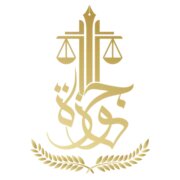Best Divorce & Separation Lawyers in Qatar
Share your needs with us, get contacted by law firms.
Free. Takes 2 min.
Free Guide to Hiring a Family Lawyer
Or refine your search by selecting a city:
List of the best lawyers in Qatar
Qatar Divorce & Separation Legal Questions answered by Lawyers
Browse our 1 legal question about Divorce & Separation in Qatar and read the lawyer answers, or ask your own questions for free.
- For divorce
- I'm a mother of 4 months baby my love in Doha I want to divorce my husband he used to physically abused me I have prove and report in police station. I need to know the steps and my right for baby and how much cost of lawyer thank you
-
Lawyer answer by Jeelani Law Empire Karachi Pakistan
Thank you for reaching out, and I'm truly sorry to hear about your situation. Your safety and well-being, as well as that of your baby, are of utmost importance. To assist you effectively, here are the steps typically involved in...
Read full answer
About Divorce & Separation Law in Qatar
Divorce and separation in Qatar are governed primarily by Islamic Sharia law for Muslims and civil law for non-Muslims. Divorce is recognized for both men and women, although the process and rights may vary. For Muslims, the family courts handle all matters related to divorce and separation, including child custody and alimony. Non-Muslims may have their cases handled according to civil procedures or their home country’s laws if applicable. It is vital to understand the local legal framework as it will heavily dictate the proceedings and outcomes of divorce cases in Qatar.
Why You May Need a Lawyer
Engaging a lawyer in divorce and separation cases can be invaluable for a number of reasons. First, lawyers can help navigate the complex legal landscape, ensuring that all legal procedures are correctly followed and that one’s rights are protected. Common situations where legal assistance is necessary include disputes over child custody, negotiation of alimony or financial settlements, and cases involving expatriates who may face additional challenges. A lawyer can also help interpret the application of Sharia law for international residents, ensuring compliance with local laws while respecting cultural and religious differences.
Local Laws Overview
In Qatar, divorce laws are significantly influenced by Sharia law for Muslims. Key aspects include:
- Types of Divorce: The main forms of divorce include Talaq (repudiation), Mubarat (mutual consent), and Khula (wife-initiated divorce). Each type has specific conditions and procedures.
- Child Custody: Typically, mothers are granted custody of young children, while fathers retain guardianship, which includes financial responsibility and decision-making power. Custody arrangements can change as children grow older.
- Financial Settlements: Financial rights and claims during divorce can include dower (mahr), maintenance during the waiting period ('iddah), and any agreed-upon financial settlements.
- Expats and Non-Muslims: Non-Muslim expatriates might have their divorce governed by the civil law system or their a native country's laws, subject to campaigns by local lawyers to reflect Sharia values in cross-cultural marriages.
Frequently Asked Questions
1. How long does it take to get a divorce in Qatar?
The duration varies depending on the complexity of the case. A straightforward case might take a few months, whereas contested divorces can last longer.
2. Can expatriates get divorced in Qatar?
Yes, expatriates can file for divorce in Qatar. The process and legal framework used depend on the couple’s religion and nationality.
3. How is child custody determined?
Custody is generally awarded based on the child’s best interests, taking into account factors such as the child's age and gender.
4. What happens to our shared property after a divorce?
Property division can be complex. It often requires agreement between parties or a court decision, especially since Sharia law does not clearly delineate property division in the same way as Western laws.
5. Is alimony awarded in Qatari divorces?
Alimony (known as "nafaqa") can be awarded depending on various factors, including the wife’s financial needs and the husband’s ability to pay.
6. What legal documents are required to file for divorce?
Common documents include marriage certificates, Qatari ID or residency permits, and, if applicable, documentation of mutual consent.
7. Can a woman initiate a divorce in Qatar?
Yes, women can initiate divorce through a process called Khula’, but it may require the return of the dower (mahr) given at the time of marriage.
8. Are divorce rulings in Qatar recognized internationally?
This can depend on the laws of the foreign country regarding recognition of foreign divorces. Consulting legal experts in both jurisdictions is advisable.
9. Do I need to be present in Qatar to file for divorce?
Physically being in Qatar might not always be necessary, but attending certain court sessions can be required. Legal representation is essential in such cases.
10. Can a foreign divorce be registered in Qatar?
Yes, a foreign divorce decree can be registered in Qatar, subject to local validation procedures.
Additional Resources
Individuals seeking guidance on divorce and separation can access several resources:
- Qatar Ministry of Justice: Provides information regarding legal services and rights.
- Family Courts: Offer consultation and assistance with divorce proceedings.
- Local Law Firms: Professional legal advice and services to navigate divorce laws and procedures.
- Embassies: Can offer guidance for expatriates on how their national laws may affect their divorce proceedings in Qatar.
Next Steps
If you need legal assistance with divorce and separation in Qatar, consider the following steps:
- Consult a Lawyer: Seeking advice from a lawyer experienced in family law is crucial for understanding your rights and obligations.
- Gather Documentation: Organize all necessary documents such as marriage and identification documents to streamline the process.
- Evaluate Financial and Custody Arrangements: Consider your financial situation and any children involved to prepare for discussions or negotiations.
- Seek Support: Emotional and psychological support can be vital during this challenging time.
Proceeding with informed steps is crucial to managing divorce or separation effectively, respecting both the legal system and personal circumstances.
Lawzana helps you find the best lawyers and law firms in Qatar through a curated and pre-screened list of qualified legal professionals. Our platform offers rankings and detailed profiles of attorneys and law firms, allowing you to compare based on practice areas, including Divorce & Separation, experience, and client feedback.
Each profile includes a description of the firm's areas of practice, client reviews, team members and partners, year of establishment, spoken languages, office locations, contact information, social media presence, and any published articles or resources. Most firms on our platform speak English and are experienced in both local and international legal matters.
Get a quote from top-rated law firms in Qatar — quickly, securely, and without unnecessary hassle.
Disclaimer:
The information provided on this page is for general informational purposes only and does not constitute legal advice. While we strive to ensure the accuracy and relevance of the content, legal information may change over time, and interpretations of the law can vary. You should always consult with a qualified legal professional for advice specific to your situation.
We disclaim all liability for actions taken or not taken based on the content of this page. If you believe any information is incorrect or outdated, please contact us, and we will review and update it where appropriate.
Browse divorce & separation law firms by city in Qatar
Refine your search by selecting a city.















